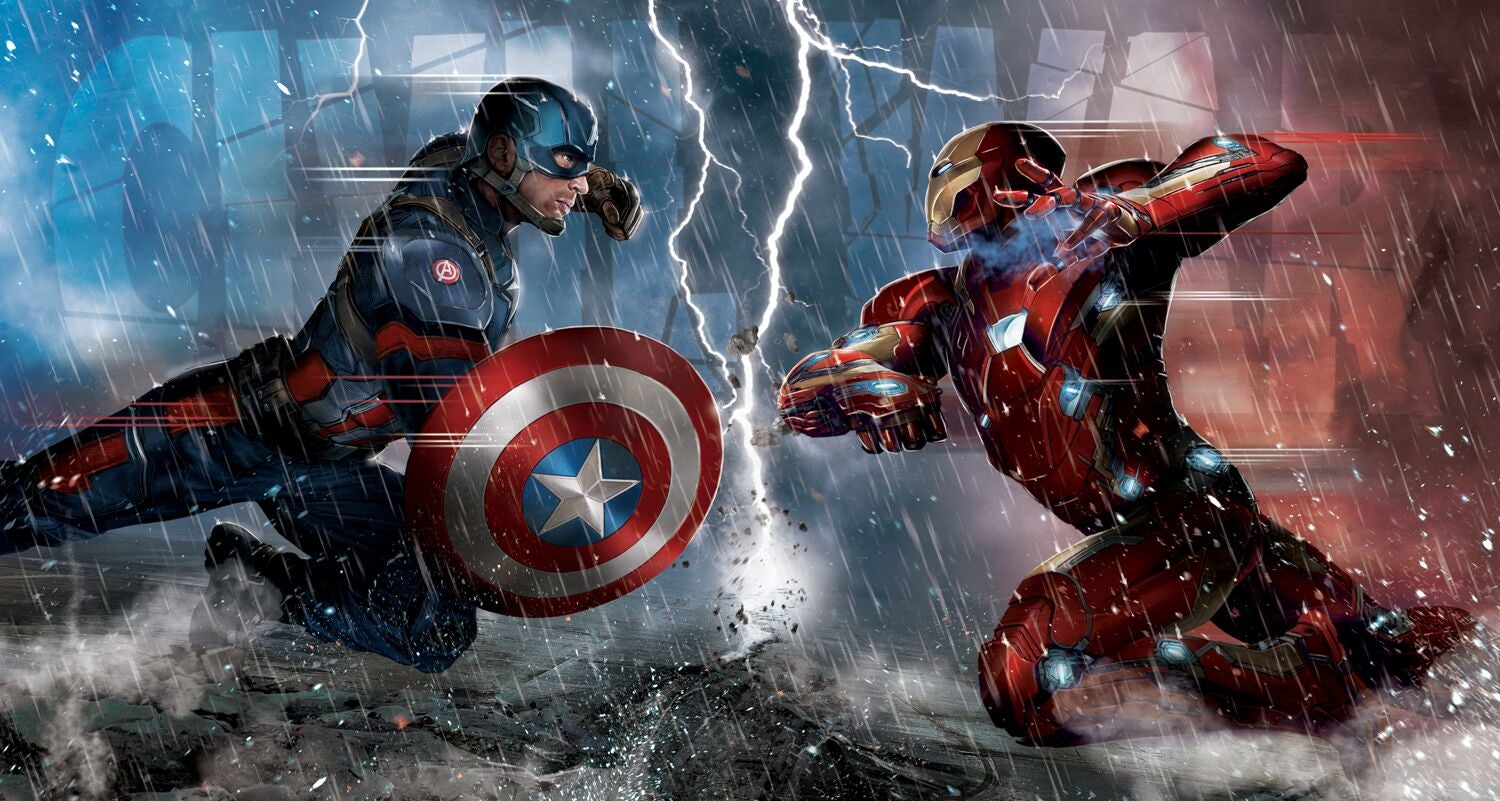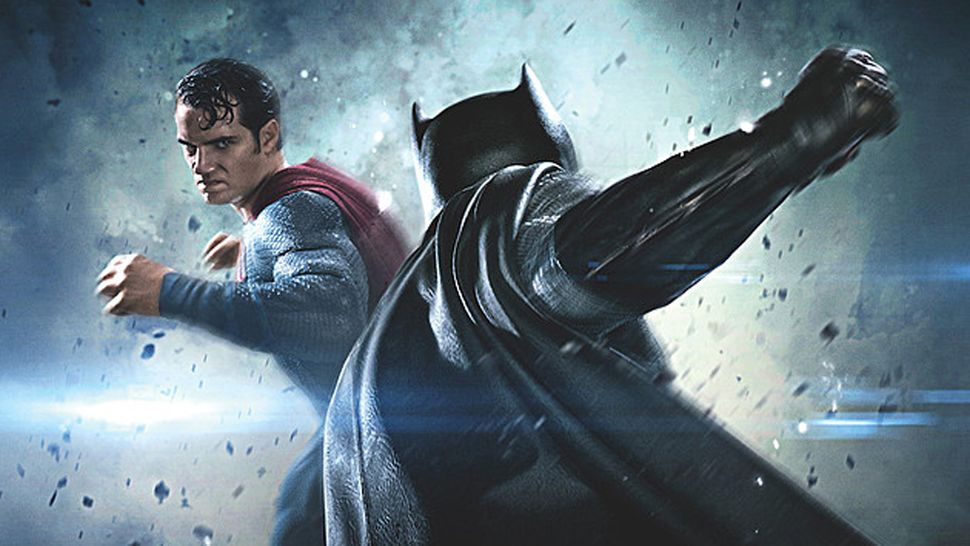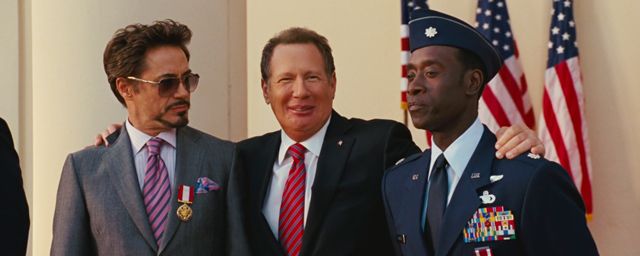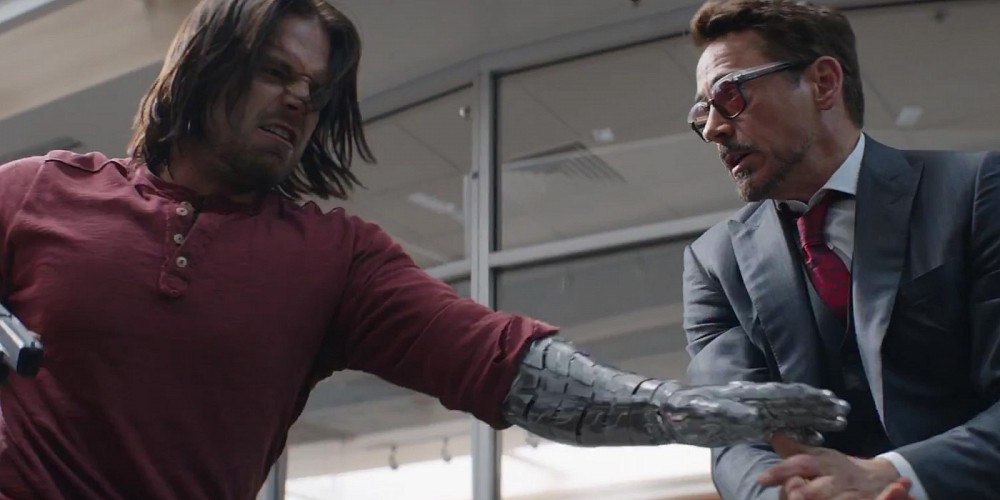This spring, a disappointing action movie in which alleged superheroes with parental issues tried to violently kill each other really let me down. No, I’m not talking about Batman v Superman: Dawn of Justice – I’m referring to Captain America: Civil War.
 |
No, not this Civil War
|
I know, the DC Cinematic Murderverse is grim, cynical and full of characters acting wildly differently from how they act in comic books – so it’s bad, bad, bad. I agree. However, I’m trying to understand why the Marvel Cinematic Emoverse – only slightly less grim, just as cynical, and full of characters acting wildly differently from how they act in other movies in the series – is considered so superior by contrast.
To be clear, I was much more entertained by the latest in-name-only Captain America movie than I was by BvS, and even, for that matter, Avengers: Age of Ultron. CA:CW has witty banter, cleverly staged action sequences, and introduces some very welcome “new” (and nearly new) characters to the Avengers milieu, which makes it an improvement over the hard-to-watch, beige-and-gray murk of the Zak Snyder killfest that was BvS as well as the poorly motivated, plot-hole-filled destructo-thon of A:AoU.
 |
| This Civil War |
However, CA:CW lacks the coherence of the previous Captain America movies, the inspiration of the first Avengers, or the fun of the more recent Ant-Man. CA:CW is a train designed to get us from one Avengers movie to the next – with the direct route requiring that the filmmakers throw out all of the characterization established since Iron Man was released eight years ago. From the start, the heroes never feel like the same people seen in previous movies. Their motivations make little sense – not only based on what’s been established before, but also based on common sense and normal human behavior.
 |
| DC heroes beating each other up is much more offensive than Marvel heroes beating each other up. |
(Nor would we have an explanation for why probably-too-expensive Gwyneth Paltrow sat this one out. Boyfriend gives you a company and you dump him – I get it, GOOP-girl.)
 |
| Suddenly Tony's down with oversight |
Why would Steve Rodgers (Chris Evans), a soldier who, from his own perspective, was letting the US government pump him full of chemicals and radiation in the name of patriotism a few years prior, decide that basic checks and balances are a threat to freedom?
Why would several folks (Black Widow, Hawkeye, and Falcon, played by Scarlett Johansson, Jeremy Renner, and Anthony Mackie, respectively), who are literally government employees, suddenly act like vigilantes threatened by registration? Why, in fact, would any heroes care about the government having their numbers when hardly anyone has a secret identity? And why would the only superhero with a secret identity (Spider-Man, played by Tom Holland this time) be on the side of registration? Why? Why? Why?
 |
| Aren't these guys, like, government agents? |
Again, the answer seems to be, “Because we need superheroes fighting and we need to make sure the teams are reasonably balanced out.”
In the movie's world – where Earth's governments acknowledge that there was an alien invasion and yet decide it was the people who saved the world from total destruction who should pay – far too many characters act like idiots entirely out of plot necessity.
The last-minute introduction of a “major” plot twist (yes, involving Stark’s mommy, who is mercifully not named Martha) does nothing to rationalize the previous two hours. By the time we find out that Bucky (Sebastian Stan) killed Roger Sterling – sorry, Howard Stark –and his wife (John Slattery and Hope Davis) we’ve seen the following:
- Steve being sure Bucky didn’t commit a terrorist act despite knowing his pal will kill on behalf of anyone who gets hold of his conveniently Commie-branded phrasebook
- Tony being just as sure that Bucky did commit said terrorist act despite knowing of multiple recent governmental conspiracies and the fact that the only evidence is a bad photo of someone in a bad wig
- Alfre Woodard being sure an easy paycheck is worth playing an angry Jiminy Cricket for five minutes and then disappearing entirely
- Everyone else being so sure of whatever it is they believe that they have no problem attempting to maim, kill, or imprison people they used to work with
Oh, yeah, about that last bullet-point: War Machine (Don Cheadle) gets paralyzed during all the fighting. He’s still paralyzed at the end of the movie. I know the whole “superheroes get into a big fight” trope is something very familiar to comic book readers, but when you see it on-screen, with actual human beings doing the fighting, it just doesn’t work the same way.
 |
| They'll work it out before Thanos comes, probably. |
In the real world, friendships end over gossip, or disagreements about who makes a better Democratic presidential candidate. If you can suspend disbelief enough to think these folks can resolve things and be pals again in the next Avengers movie, you are much better at disbelief-suspension than I am. Sorry, there are some things a friendship can’t rebound from, and on the list are both paraplegia and imprisonment.
What’s even more disappointing is that the actors are uniformly great. At this point, Evans and Downey are their characters; in a few minutes, Holland establishes himself as the most appealing Spider-Man yet; Chadwick Boseman is intriguing as Black Panther; Paul Rudd is … well, he’s Paul Rudd, which is fine. I walked out of the theater thinking, “I bet the next few movies will be great. It’s a shame Captain America doesn’t rate his own movie.”
 |
| When you get to know him, he's a real pussycat. |
 |
But this was totally cool, right?!
|













